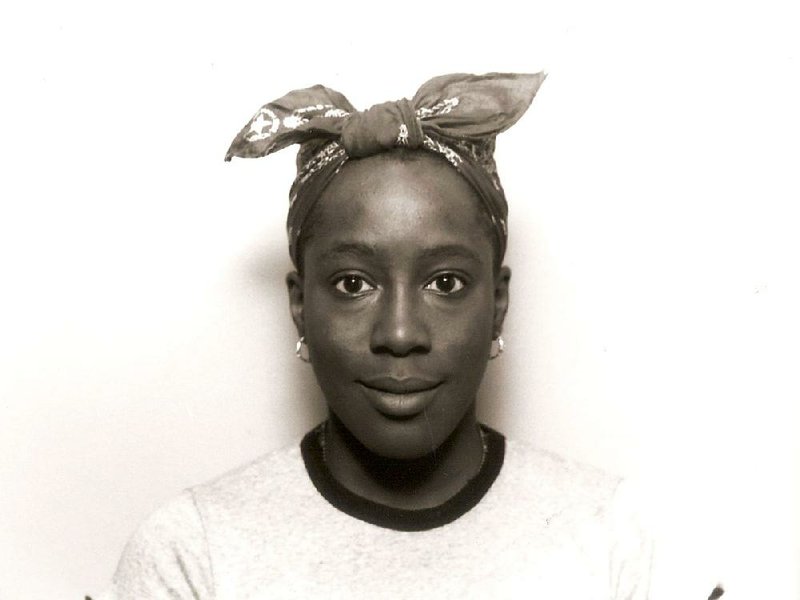With the quality of talent and films it attracts, it's hard to believe that Little Rock's Kaleidoscope LGBT Film Festival -- which runs Aug. 11-19 at the Argenta Community Theater -- is only in its third year.
Armistead Maupin, author of the influential nine novel series Tales of the City (which became a miniseries on PBS and Showtime) and The Night Listener will not only attend the showing of the documentary The Untold Tales of Armistead Maupin at 4:15 p.m. on Aug. 13, but he'll also speak at a dinner in his honor co-sponsored by the Oxford American at South on Main the following Monday.
In addition, Kaleidoscope is presenting Francis Lee's God's Own Country, which won Lee a directing award at Sundance Film Festival and a best film award at the Berlinale international festival in Germany. It concerns an alcoholic Yorkshire farmer who falls for a Romanian migrant. Princess Cyd, which closes the festival, is a coming of age drama about a teenage athlete, and director Stephen Cone will attend a Q&A.
Also scheduled to attend are Glee alumna Jenna Ushkowitz, representing Hello Again, in which she stars, and pioneering filmmaker Cheryl Dunye, who will be celebrating the 20th anniversary of the release of her breakthrough film The Watermelon Woman, which blurred racial, sexual and narrative dividing lines.
If Kaleidoscope seems established now, festival director Tony Taylor says the event filled a void that frustrated movie lovers of all sorts, not just lesbian, gay, bisexual and transgender folks. He said that around seven years ago, he noticed a growing audience that wasn't being served.
"I was really paying attention to Outfest (which is based in Los Angeles) and Frameline (in San Francisco) that year, and I just started noticing a sea of change in LGBT films," he says. "They just seemed to be becoming -- and I hate using this word -- more 'mainstream.' They seem to be clicking with more people. They seem to be moving beyond a very niche market ....
"That was before same-sex marriage was legal. People's opinions have evolved when it comes to LGBT rights, but Little Rock has always been a special place in Arkansas. You have more open-minded people. I felt like Little Rock had not just an LGBT community but allies in the city that I knew could support an LGBT festival."
Yet, Taylor notes, none of these films were screening in Arkansas.
"We would have other festivals in the state that would occasionally pick up one here or there," he says. "But I look at Outfest and Frameline's lineup, and there [are a] dozen films that I wanted to watch here in Arkansas. That's what got it started. There was this plethora of ... great-sounding movies at that time [but] I didn't have a chance to watch them until many months or years later on [video on demand]."
Taylor seems elated about the level of talent and craftsmanship involved in this year's festival selections, and he credits director of feature film programming Mark Thiedeman's eye for quality for finding films like Jen Gerber's Arkansas-made The Revival, which screens Aug. 19, and Sunday Church, which star Luka Kain (who won best actor at Outfest) will present Aug. 18.
He says that having talent on hand is certainly a plus, but simply getting to see the films is a sadly rare experience.
"With distribution, no one knows how it works now," he says. "It's an ever-evolving thing. You never know if it's going to be distributed. If you don't watch it at a film festival, especially with indie films, it can be a long time before you have an opportunity to watch it. Not every film gets picked up for distribution. A film festival, especially an LGBT film festival, that could be your only opportunity to watch that film."
Taylor is initially coy about indicating if he has any favorites in this year's lineup. It's almost like asking a parent to pick a favorite child. He then expresses fondness for Princess Cyd and God's Own Country, and seems especially glad to present The Watermelon Woman to a new audience.
"When I very first started Kaleidoscope, in my head I wanted to show new films but also retro films, and The Watermelon Woman was at the top of my list, with Cheryl [Dunye] here," he says. "That was the key part. I didn't want to just do a screening of The Watermelon Woman. I wanted a screening with Cheryl here.
"It's about the only chance to meet these people in person because we're in Arkansas. We're not in L.A. There's not an opportunity every year to meet people like this for a book signing, or whatever. There are people I look forward to meeting, but I also want to give people in Arkansas the chance to meet these people and talk with these people about their films."
Taylor also says Arkansas offers some attractions for the filmmakers. Maupin may have set most of his stories in San Francisco, but he grew up in Raleigh, N.C., so Kaleidoscope is a return to his Southern roots.
"I'm not sure what there is to it because I'm a lifelong resident, but there is a mystique to Little Rock and Arkansas that makes people curious about the city and state," he says. "Right off the bat, I had many filmmakers who wanted to attend the festival in Little Rock. They said that. They thought it would be great to come to a city like Little Rock and a state like Arkansas. To be honest, not everyone has a reason to come to Arkansas, so to be given a reason to come to a state adds to it, I believe."
For more information, go to: kaleidoscopefilmfestival.com.
MovieStyle on 08/04/2017
